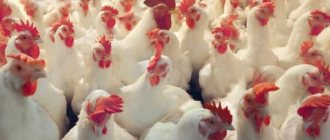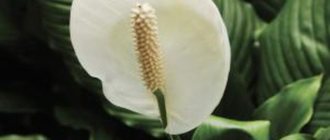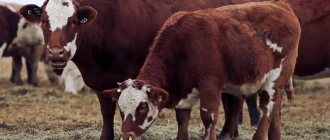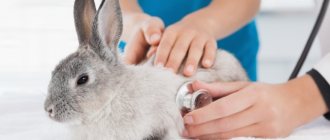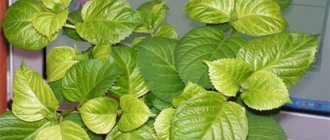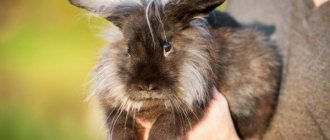Rabbits are easy and profitable to breed. But breeders should always remember that these cute furries can get sick often. Each symptom that indicates an illness must be treated carefully.
If detected in time, the disease can be easily cured, thereby preventing the animal from suffering. According to the observations of experienced rabbit breeders, rabbits most often sneeze. This symptom may indicate many pathologies. Therefore, it is important to quickly find out the exact cause of the occurrence in order to correctly treat the animal.
Why do rabbits sneeze
Causes of sneezing in a rabbit can be:
- physiological reactions to environmental factors (stress, poor housing and feeding conditions, non-compliance with temperature conditions);
- development of a non-contagious disease due to hypothermia, allergies, trauma;
- infectious diseases.
To find out the exact final diagnosis, it is recommended to show the rabbit to a veterinarian. This will help to properly treat the animal, prevent the spread of the pathological process, and reduce the risk of complications (in case of infection).
Prevention measures
To exclude colds that cause sneezing in pets, you need to follow simple preventive measures:
- Clean cages and enclosures daily, change bedding, and regularly disinfect areas of detention;
- install rabbit hutches in places protected from drafts in a shaded area;
- provide high-quality feed enriched with vitamins and minerals;
- Conduct weekly examinations of pets, isolating individuals with signs of illness or other disorders;
- vaccinate pets against viral diseases;
- maintain optimal temperature and humidity conditions;
- exclude contact with allergens;
- If there are signs of the disease, start therapy in a timely manner.
Compliance with these rules will minimize the risk of diseases and other problems. Rabbits will grow up healthy and active.
Rabbit sneezes without snot
Eared sneezing without nasal discharge indicates that the pathology is not contagious. The symptom manifests itself through a variety of factors, which are best identified in time and quickly eliminated.
| Cause | How to help |
| 1. Stressful situation. Sneezing during stress is not accompanied by rhinitis or lacrimation. Usually occurs when an animal is moved to a new rabbitry, frightened, or a sudden change in diet. | It goes away on its own after the rabbit’s psychological state normalizes and gets used to a new irritating factor. |
| 2. Poor living conditions. Dust, dirt in the cages, infrequent bedding changes. Failure to comply with the permissible room temperature, high concentration of ammonia, CO2, lack of ventilation. Being near a source of strong odors (paints, varnishes, fertilizers, disinfectants). Exposure to direct sunlight. The above factors can also cause nasal discharge. | Eliminate the irritant: rinse the animal’s nose with water several times. |
| 3. Wrong diet. If the products are incorrectly selected, they can cause sneezing without snot and disruption of the gastrointestinal tract. | Establish a proper diet, exclude from the list foods to which the rabbit has food intolerance. |
| 4. Dry air. The nasal mucosa in rabbits is very sensitive, it quickly dries out in a room with low humidity (below 40%), and begins to become inflamed. The resulting irritation stimulates the sneezing reflex in animals. | Humidify dry air - turn on the humidifier, place containers with water. |
| 5. Allergies. The following factors can cause: bedding filler; introduction of feed that causes allergies; deodorants; dust; medicines. The rabbit sneezes, coughing, hoarseness, and watery eyes. | It is difficult to determine the cause of an allergic reaction on your own. It is recommended to consult a veterinarian. The complex of therapeutic measures includes eliminating the allergen and taking antihistamines. |
| 6. Injury to the nose. Accompanied by sneezing, snorting, and difficult rapid breathing. | Consultation with a doctor followed by subsequent therapy (antiseptic treatment of the injured nose, application of painkillers, ointments with heparin for resorption of hematomas). |
How to prevent a problem from occurring
To prevent diseases that cause rabbits to sneeze, you must follow these rules:
- promptly clean the cage from uneaten food, dust and dirt;
- change the water in the drinking bowl daily;
- regularly change the bedding in the cages;
- avoid drafts and sudden temperature fluctuations in the rabbitry;
- monitor the level of air humidity;
- buy high-quality food that does not contain questionable ingredients and impurities;
- introduce new food gradually, observing the animals’ reaction;
- eliminate all possible allergens;
- Vaccinate pets every six months;
- periodically give animals herbal decoctions to strengthen the immune system.
The decorative rabbit sneezes for the same reasons as its meat counterparts. Therefore, treatment measures should be similar.
If your rabbit is sneezing frequently, it should not be ignored. Sneezing can be a sign of both minor and dangerous changes in the body. Therefore, a pet who is sneezing should be taken to the vet immediately. Proper treatment prescribed by a specialist will avoid complications.
Rabbit snot and sneezes
Sneezing in rabbits is often accompanied by snot, which occurs with various colds, both contagious and not. If the animal is not treated, the infection can spread to the lower respiratory tract, causing bronchitis and pneumonia. Since most colds begin with rhinorrhea, treatment must be started quickly.
Infectious disease
The nature of the disease may be infectious. In this case, it is contagious and can spread to surrounding animals. Bacteria and viruses accumulate in the respiratory tract and attack when the immune system is weakened. Treatment must be started immediately. Otherwise, the condition will quickly deteriorate, the disease will progress to more complex stages: pneumonia, bronchitis, pleurisy. If ignored further, the animal may die. The main sources are:
- pasteurella;
- streptococci;
- bordetella;
- staphylococci.
Pathogens can be carried by a healthy animal. If he has high immunity, she will not get sick, but she can infect others. A rabbit can catch an infection from a person with inflammation of the tonsils.
The first symptoms are noticeable a few days after infection:
- cough;
- sneezing;
- inflamed nasal mucosa;
- white snot;
- tearing eyes;
- depression and apathy;
- labored breathing;
- elevated temperature;
- wheezing and whistling.
Delaying treatment can cause serious complications and death of your pet.
Symptoms of colds
| Symptoms of colds | |
| Non-infectious origin, non-contagious. | With an infectious etiology (caused by viruses, bacteria, fungi), contagious. |
| Sneezing Cough Watery eyes Runny nose (clear discharge), crusts near the nose Slight fever Increased fatigue | Sneezing Cough Severe swelling of the nasal mucosa Rhinitis (discharge thick, white, yellow, with green admixtures) Tearfulness, inflammation of the mucous membrane of the eyes Depressed state Decreased appetite or complete refusal to eat Temperature rise of more than 40 C Difficulty breathing, hoarseness, shortness of breath and cough, whistling sounds are heard when breathing |
Causes of rabbit sneezing
A runny nose, which is accompanied by sneezing, is a common occurrence in the rabbit family, especially in the off-season and in young animals.
This symptom can act as an independent disease or a sign of another disease in rabbits.
Stress
Rabbits, like any living creature, react to external stimuli. They are psycho-emotional, so any stress, fear, etc. can cause sneezing. This is a peculiar reaction of the body. To understand that stress is the cause, pay attention to the following symptoms:
- a sharp start of sneezing and an equally sudden end;
- absence of runny nose and lacrimation.
You can get stressed due to a change of place of residence (you just bought a rabbit or moved it to a new home), the appearance of a new pet, or a change in food.
Improper care and living conditions
If rodents are not kept in proper conditions, this will certainly affect their health. What is considered improper care and maintenance:
- high humidity;
- a lot of dust in the cage;
- dirt;
- leftover food on the floor that was starting to spoil;
- presence of foreign odors;
- rare change of drink, filler and food;
- improper diet;
- penetration of too much sunlight into the cell.
If this is the reason, then it must be eliminated immediately. Remember that such reactions to dust and other factors may be the first signal for the development of a more serious disease.
Poor nutrition
Sometimes sneezing occurs when changing food, which causes irritation, rhinitis and even poisoning in the pet. This does not mean that the food is poisoned, it’s just that your animal has such a reaction to it. If this happens, be sure to return the rabbit to its usual diet, and then everything will return to normal.
Dry air
Not only high humidity leads to sneezing, but also dry air, as it irritates the mucous membranes of the nose, which leads to an inflammatory process. This most often happens in hot weather or winter, when heating devices are installed near the cage.
See also Worms in rabbits and methods of treatment with folk remedies
In this case, you need to artificially humidify the air - place containers of water nearby, hang wet towels, etc. It is imperative to ventilate the room.
Nose injury
Quite often, sneezing occurs due to injury to the nose or respiratory tract. In this case, the pet may additionally snort, cough and breathe heavily. He feels pain, so he becomes inactive, mucus with blood splashes or only blood may flow from his nose.
Allergy
An allergic reaction in rabbits may appear to certain food, grass, dust, hay for bedding, or drugs if medical therapy is carried out. It is easy to identify an allergy - the rodent not only sneezes, but also coughs, rubs its nose and eyes with its paws. The animal's tear production increases and the airways become inflamed.
Infectious cold
A common cause of sneezing is an infectious cold called rhinitis.
It is accompanied by the following symptoms:
- runny nose;
- discharge from the nasal and oral cavity;
- decreased appetite;
- lethargy;
- tearfulness;
- increased body temperature;
- redness of the mucous membranes.
The cause of infection is a virus whose incubation period does not exceed 3 days. The main danger of an infectious cold is the death of the animal or complications. Infection can occur from any pet or person.
Non-infectious cold
Non-infectious colds occur for the following reasons:
- sudden change in air temperature;
- draft;
- hypothermia;
- high humidity.
Thus, the common cold is influenced by external factors, not viruses. The disease manifests itself as follows:
- swelling of the nasal mucosa;
- labored breathing;
- formation of dry crusts in the nose area;
- runny nose with mucous discharge;
- cough;
- decreased appetite and activity;
- chills.
If a cold is not treated, it develops into a chronic form, which manifests itself as a sharp exacerbation and the same relief.
Infection
Sneezing can occur due to infection of the rabbit’s body with bacteria such as streptococcus, pasteurella, staphylococcus, bordetella, etc. You can become infected through sick animals, human clothing and shoes, food, bedding hay, dirty hands, insects, water, etc.
Symptoms:
- runny nose;
- white and greenish discharge from the nose;
- swelling and hyperemia of the nose;
- tearing and inflammation of the eyes;
- cough and shortness of breath;
- difficulty breathing;
- lethargy and complete refusal to feed.
As the disease progresses and pathogens multiply, weight loss occurs. Purulent exudates come out of the nose and dry on the skin. Therefore, the infection must be treated immediately.
Polyps and other benign and malignant tumors can form in the animal's nose. Penetration of a foreign body (hard lump, grass residues, etc.) is possible. With any disease, the rodent feels weakened and needs a veterinary examination.
See also: What to do if a rabbit has snot and how to treat it?
How to treat
Only a veterinarian can determine the nature of a cold in a rabbit after performing tests. Therefore, in order not to miss time before receiving test results, therapy begins with preventive measures:
- Isolation of an eared cat with signs of a cold (sneezing, snot).
- Disinfection of rabbitry and equipment.
- From the moment of isolation until complete recovery, the baby rabbit should be kept warm (you can use a heating pad or turn on an infrared lamp).
- Control of living conditions - room temperature (often often ventilated), food (vitaminized), air humidity.
- Carrying out daily hygienic treatment of the nose:
- Removing crusts around the nostrils (to soften, use a 3% hydrogen peroxide solution).
- Rinsing the nasal concha (you can use saline solution or boiled water).
- Treatment of the nasal mucosa with Vaseline oil (the use of oxolinic ointment is allowed).
- Instillation of medications: - Furacilin solution (1 tablet is crushed, dissolved in 100 ml of hot boiled water). Instill the cooled solution with a pipette, 10 drops per day, into each nostril, for 14 days. - A mixture of penicillin and novocaine (20,000 units of benzylpenicillin are diluted in 1 ml of 0.25% novocaine solution). The prepared mixture is dripped into each nostril 1-2 drops 3 times a day. This remedy relieves pain, helps relieve swelling, and prevents the development of bacterial infection. - A food antibiotic is added to the feed - Biomycin (dissolved in warm water before feeding) - 1 mg per day per 1 rabbit for 5-7 days. - Spend 7 days, 15 minutes a day, inhaling with essential oils (eucalyptus, tea tree, lavender, cloves) - 1 drop per 1 liter of water, or with herbal decoctions (mint, chamomile, sage, fennel).
A common cold in a rabbit can go away quickly if you follow all the above recommendations.
If the bacterial etiology of the disease is confirmed by analysis, the veterinarian prescribes stronger antibiotics:
- Chloramphenicol (Levomycetin) - 30 mg/kg 1 time per day intramuscularly.
- Marbocil 2% - injection twice a day, 0.1 mg per 1 kg of rabbit body weight.
- Baytril 5% - 0.3 mg per 1 kg of body weight (injection or as part of feed).
The course of antibacterial therapy is 5-7 days.
It is important not to stop antibiotic treatment before the time recommended by the veterinarian (even if the animal feels much better and looks healthy). After antibiotic therapy, it is recommended to give the animal probiotics to restore the microflora of the gastrointestinal tract (Linex, Hilak Forte).
Video Rhinitis? Is your rabbit sneezing? That way!
Colds and rhinitis
The most common cause of snot in a rabbit is a simple cold.
It can be triggered by drafts in the cage, strong winds, or sudden temperature changes. Snot appears especially often in the smallest rabbits and in young animals that have not reached puberty. Most often, cages with rabbits are kept outside, which helps strengthen their immune system. However, in extreme cold, breeders often remove them indoors, and when it warms up, they take them out into the fresh air again. If such a transition is very abrupt, the rabbits may catch a cold. In addition, if the cells are not sufficiently insulated and protected from drafts, then in the autumn-winter period a runny nose is a common occurrence.
According to the form of its course, rhinitis is divided into transient, acute and chronic.
The acute course of the disease is characterized by frequent sneezing. At the same time, the animals shake their heads and rub their noses with their paws. With such a runny nose, the inner surface of the nasal mucosa swells, either clear or whitish discharge appears on the outside, and dried crusts may appear around the nostrils. If the nose is very clogged, then rabbits switch to mouth breathing. The chronic form of the runny nose is characterized by periodic exacerbations, accompanied by declines in the disease over a fairly long period of time.
It is very important to correctly diagnose and determine the form of the disease. Without this, treatment may not only be ineffective, but in some cases even harmful to the health of the animal.
First of all, viral and infectious causes of rhinitis should be excluded, and this requires consultation with a veterinary specialist.
More on the topic: Why does bloating occur in rabbits?
What to feed when sick
When sick, a rabbit needs a carefully selected diet. The amount of dried grass, juicy root vegetables, and high-quality hay (in winter) is increased. The menu is enriched with vitamin and mineral premixes to strengthen the eared immunity.
Every day, rosemary, dill, mint, chamomile, and basil are added to the animal’s food. Useful decoctions are also made from these medicinal plants and given to animals with a cold. Water drinking bowls must be monitored - the animal must drink a lot.
Video Prevention of Rhinitis! The rabbit sneezes and sniffles, come here!
Traditional medicine in the treatment of rabbits
Traditional medicine is an excellent way to cope with various ailments, including in rabbits. For rhinitis, animals are given inhalations using various medicinal plants. So, a decoction of thyme, sage, mint, and eucalyptus helps well. Some people inhale essential oils. When they are inhaled, the amount of secretions decreases, inflammation of the mucous membrane goes away, and breathing improves.
Inhalations are done for no longer than a week. With longer use, drying of the nasal mucosa occurs.
To do inhalation, you need to put the rabbit in a separate cage and put a bowl of water and hay there. An inhalation container is placed next to the cage. The cage is covered with an old sheet so that the vapors penetrate into the cage. Be sure to leave a small gap for fresh air to enter. Inhalation is done no more than twice a day. After the procedure, the secretion of mucus from the nose accelerates and breathing becomes easier.
